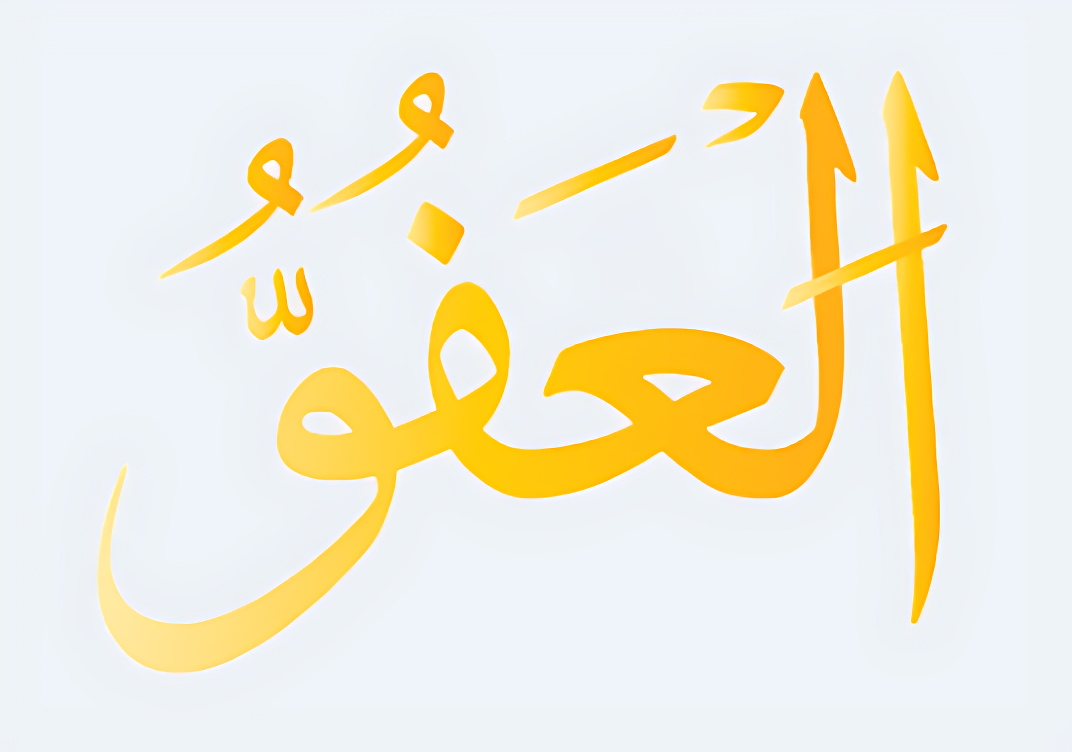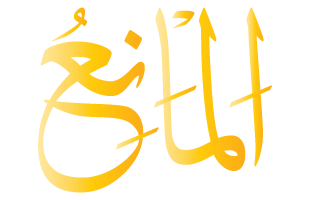Attributes of Allah (سُبْحَٰنَهُۥ وَتَعَٰلَىٰ):
The purpose of this page is to provide a categorization of the ninety names of Allah (سُبْحَٰنَهُۥ وَتَعَٰلَىٰ) to explore related names. For example, grouping the names by their attributes, i.e., Names of Mercy, Power, Oneness, etc.
You can select any attribute, and it will filter the list. You're also able to select multiple attributes if you like.
Note: These groupings are meant to serve as an educational tool. Other categorizations may exist; for example, others have included names of everlastingness or non-resemblance. Some names can be interpreted as belonging to multiple categories. We've categorized the names of Allah (سُبْحَٰنَهُۥ وَتَعَٰلَىٰ) by the 13 most commonly mentioned attributes.
Select Attribute:
There are currently 99 Names being displayed with the attribute(s) selected.
99 NAMES OF ALLAH
An introduction to the ninety names of Allah?
Why even begin to learn the ninety names of Allah سُبْحَٰنَهُۥ وَتَعَٰلَىٰ ?
Take a second to guess what subject is the most repeated in the entire Qur’an? Did you guess the day of resurrection? Or maybe marriage? Perhaps various chapters describing what paradise is like? Given this is a page dedicated to the 99 names Allah سُبْحَٰنَهُۥ وَتَعَٰلَىٰ you might’ve figured out that we’re alluding to the correct answer, which is in fact the names of Allah سُبْحَٰنَهُۥ وَتَعَٰلَىٰ.
The attributes of Allah سُبْحَٰنَهُۥ وَتَعَٰلَىٰ is the most repeated subject in the entire Qur’an. It’s very hard to go by a page where we don’t learn something about Allah سُبْحَٰنَهُۥ وَتَعَٰلَىٰ. We read about how he is the most kind, the most merciful, the most wise, the knower of everything, the see-er of all that you do, free from all wants, worthy of all praise. Imam Al-Shafi’i mentioned, “Whatever the Umma says is merely a commentary on the tradition of the Prophet ﷺ, and whatever the traditions of the Prophet say is merely a commentary on the Qur’an, and whatever the Qur’an says, it is a mere commentary on the excellent names of Allah.”
It can seem like memorizing the names of Allah سُبْحَٰنَهُۥ وَتَعَٰلَىٰ is not a rigorous academic pursuit. It can seem basic, but the reality is knowing the names of Allah is a strong foundation of tawhid. Part of believing in Allah and his oneness is to know his names and attributes. Being able to paint a clear picture of Allah سُبْحَٰنَهُۥ وَتَعَٰلَىٰ, having that clarity starts with knowing his essence, and we can start this journey by a study of His names.
Is it possible you could love and respect someone you do not know at all? It’s hard to have a deep connection with a random stranger across the world who you do not know. That’s not to say you can’t have respect for that person or be empathetic towards their struggle. But as you converse with them, and learn about their background, his or her upbringing, passions, or interests, you begin to establish a deeper connection. Similarly, the more you engage and learn the names of Allah سُبْحَٰنَهُۥ وَتَعَٰلَىٰ, the more you’ll love, fear, respect, and obey Him. Allah سُبْحَٰنَهُۥ وَتَعَٰلَىٰ is close to us, “And We have already created man and know what his soul whispers to him, and We are closer to him than [his] jugular vein” (50:16) The million-dollar question is what effort have we made to be close to Him? These names were revealed, so we could learn about Him and deepen our connection with our creator. But like with any relationship, the strongest and most enduring relationships require effort and hard work.
We must note, that these names are not superficial either. Some of the names of Allah may seem similar, but they are not synonymous. Each name represents a unique attribute. They highlight some virtue or value that is noble in Islam. To know them is a source of knowledge. What’s even greater is to try and integrate them into your life to be lived and emulated to the best of your ability.
When we come to understand the ninety names of Allah, we can begin to see the world in a new light. If we understand how Allah سُبْحَٰنَهُۥ وَتَعَٰلَىٰ is Al-Alim (the all-knowing), Al-Hakeem (the wise one), and Al-Muqsit (the just one) we would come to understand that whatever happens to a believer, that whatever Allah decrees would be good for him or her. Suhaib reported that Allah’s Messenger (ﷺ) said: Strange are the ways of a believer for there is good in every affair of his and this is not the case with anyone else except in the case of a believer for if he has an occasion to feel delight, he thanks (God), thus there is a good for him in it, and if he gets into trouble and shows resignation (and endures it patiently), there is a good for him in it. [3] If you believe in Allah and know his attributes you would not question, complain, or curse the world around you when faced with a difficult situation. Knowing the beautiful names of Allah سُبْحَٰنَهُۥ وَتَعَٰلَىٰ and understanding what they mean would help you, it would guide you to endure patiently. They would bring you comfort and give you peace.
There is nothing greater than Allah سُبْحَٰنَهُۥ وَتَعَٰلَىٰ. Therefore a study of his attributes will be one of the greatest pursuits you can undertake.
Where does asmaul husna come from?
The meaning of Asma ul husna is the beautiful names of Allah سُبْحَٰنَهُۥ وَتَعَٰلَىٰ. This idea of his beautiful names and attributes is mentioned directly from the Qur’an as well as corroborating hadith.
Say to them (O Prophet!): “Call upon Him as Allah or call upon Him as al-Rahman; call Him by whichever name you will, all His names are beautiful. Neither offer your Prayer in too loud a voice, nor in a voice too low; but follow a middle course.” (17:110)
“Call upon your Lord in humility and privately; indeed, He does not like transgressors. And cause not corruption upon the earth after its reformation. And invoke Him in fear and aspiration. Indeed, the mercy of Allah is near to the doers of good.” (7:55-56)
Abu Hurairah narrated that the Prophet said: “Indeed, Allah has ninety-nine Names, whoever counts them shall enter Paradise.” [4,2]
“Be mindful of Allah and He will protect you. Be mindful of Allah and you will find Him before you. When you ask, ask Allah, and when you seek aid, seek Allah’s aid.” [5]
What we also learn from this, is a study of the ninety names of Allah is also a study of du’a or of ibadah (meaning worship). They were revealed to us so we can be mindful of them when we call upon Him.
Best way to memorize the ninety names of Allah?
Narrated Abu Huraira: Allah’s Messenger (ﷺ) said, “Allah has ninety-nine names, i.e., one-hundred minus one, and whoever knows them will go to Paradise.” [1]
Narrated Abu Huraira: Allah has ninety-nine Names, i.e., one hundred minus one, and whoever believes in their meanings and acts accordingly, will enter Paradise; and Allah is witr (one) and loves ‘the witr’ (i.e., odd numbers).[2]
The hadith mentions that the one who memorizes the 99 names of Allah سُبْحَٰنَهُۥ وَتَعَٰلَىٰ will enter Jannah. People often read this with skepticism as they take it literally, they question and doubt, “that’s it, that’s all I have to do to go to heaven?” Because of a lack of trust among people we’ve developed a sixth sense, “if it sounds too good to be true, it’s probably because it is.” But Allah سُبْحَٰنَهُۥ وَتَعَٰلَىٰ knows best, learning the 99 names of Allah may be some deciding factor for you to enter paradise – but it’s not to say we can neglect all mandatory acts. It is my understanding of this hadith and of hadith in general, that exaggeration was a tool used by the Prophet Muhammad ﷺ as a teaching mechanism to emphasize the great rewards to Bedouin Arabs. During this time, education wasn’t mandatory, for effective communication among both the illiterate and literate, analogies, metaphors, and hyperbole were used to emphasize the importance of a thing. Allah knows best, but it’s probably not enough to just learn the names of Allah and disregard all your other duties as a Muslim.
As you start this beautiful journey, it may begin with rote memorization. But gradually make the effort to ‘believe their meanings and act accordingly. This is where a deeper understanding and connection with Allah سُبْحَٰنَهُۥ وَتَعَٰلَىٰ is established. It’s best to tackle this in chunks, if I lined up 99 people and asked you to remember each one of their names, that seems like quite the challenge. But if I shrunk them down to a smaller group of five, I know you could do it. Do the same with the ninety names of Allah سُبْحَٰنَهُۥ وَتَعَٰلَىٰ. Start with five and no more, randomly throughout the day ask yourself, what were the five names of today? Once you firmly grasp the five then add to it. In just twenty days you could say you know all ninety names of Allah. This is a more digestible approach. We recommend taking the 99 names of Allah quiz as a fun and interactive way to learn the 99 names of Allah سُبْحَٰنَهُۥ وَتَعَٰلَىٰ and test your knowledge.
The names of Allah سُبْحَٰنَهُۥ وَتَعَٰلَىٰ are not limited to the 99 names.
It’s important to state that the names of Allah سُبْحَٰنَهُۥ وَتَعَٰلَىٰ are not just limited to these ninety names. It is understood that the hadith, “Narrated Abu Huraira: Allah has ninety-nine Names, i.e., one hundred minus one.”[2] highlight or emphasize these names in particular for the special purpose in that “whoever believes in their meanings and acts accordingly, will enter Paradise” [2] Similarly, if someone was to say they have ninety dollars it does not imply that’s all they have. To support to the view of having more than ninety names this hadith is often referenced, bn Mas’ud reported: The Messenger of Allah, peace, and blessings be upon him, said,
“If any Muslim is afflicted with distress and makes this supplication, then his supplication will be answered: O Allah, I am your servant, the son of your servant, the son of your maidservant. My forelock is in your hand, your command concerning me prevails, and your decision concerning me is just. I call upon you by every one of the beautiful names with which you have described yourself, or which you have revealed in your Book, or you have taught to any of your creatures, or which you have chosen to keep in the knowledge of the unseen with you, to make the Quran the delight of my soul, the light of my heart, and to remove my sadness and dispel my anxiety.” The Prophet said, “If he says this, Allah will remove his affliction and replace it with joy and happiness.” They said, “O Messenger of Allah, should we not learn it?” The Prophet said, “Yes, whoever hears it should know it.” [6]
The phrase, “or which you have chosen to keep in the knowledge of the unseen with you” teaches us that there are names kept unknown. There are works dedicated by other scholars that exceed ninety names.
References
[1] Sahih al-Bukhari 2736
[2] Sahih al-Bukhari 6410
[3] Sahih Muslim 2999
[4] Jami at-Tirmidhi 3508
[5] Jami at-Tirmidhi 2516
[6] Musnad Ahmad 3704


































































































